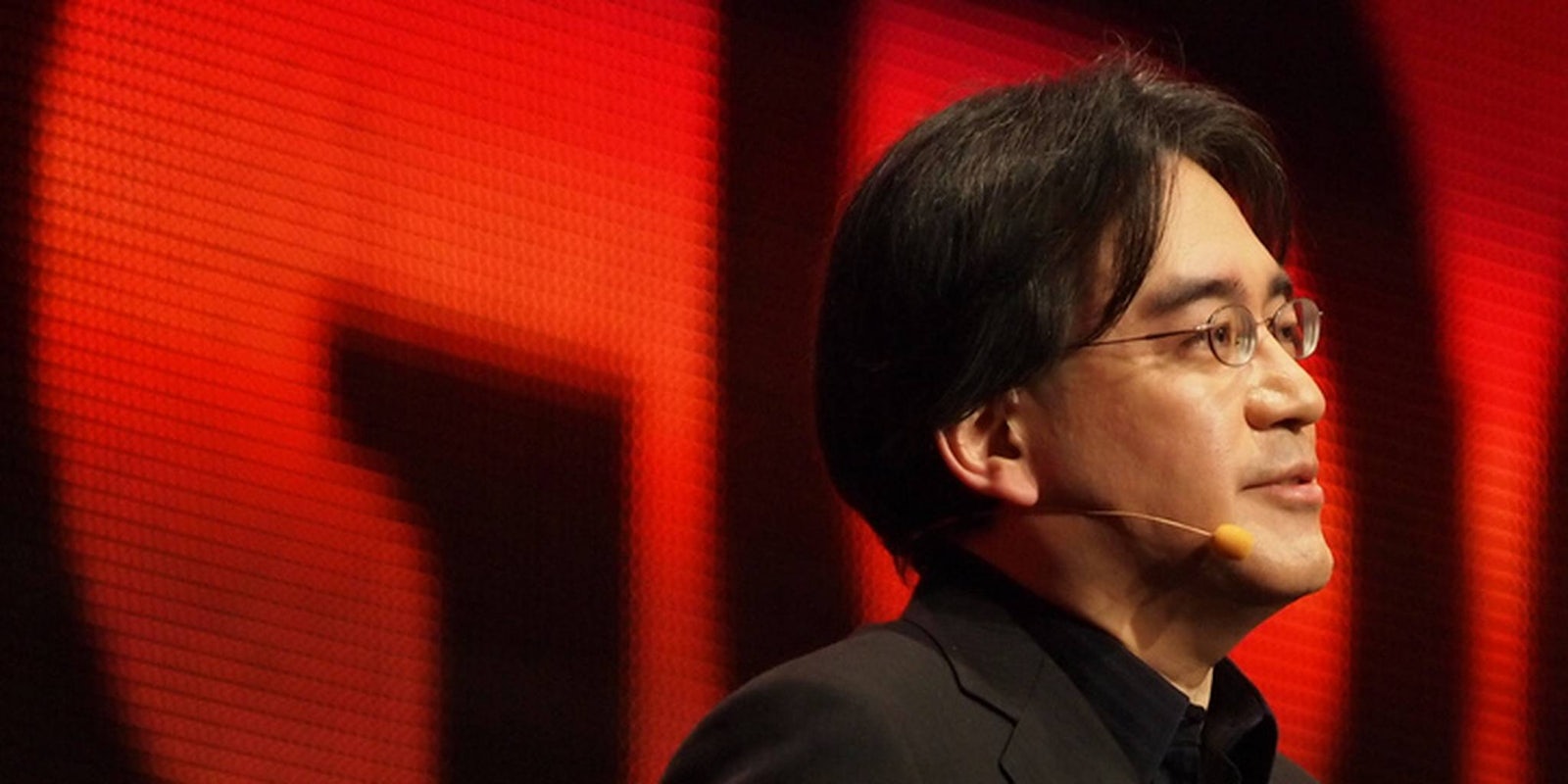It looks like we won’t be seeing Super Mario RPG or Earthbound on our iPhones anytime soon—or ever.
Earlier this week, Nintendo announced its partnership with Japanese mobile platform giant DeNA to bring its games to phones and tablets. The move was so unprecedented and huge that Nintendo’s stock jumped up a good 27 percent.
Of course, many have been wondering what prompted the change of heart from a company that has repeatedly insisted that a move to mobile would never happen.
Time reporter Matt Peckham recently sat down with Nintendo President and CEO Satoru Iwata to find out just that.
First and foremost, Iwata wanted to make it clear that Nintendo would not enter the mobile space to just release mobile versions of its games. The company, Iwata said, “will develop brand new software which perfectly matches the play style and control mechanisms of smart devices.”
Iwata wants to use the broad appeal of mobile as a sort of Trojan horse to make casual gamers “eventually become fans of our dedicated systems.”
The importance of a dedicated Nintendo system is underscored by Iwata’s announcement that Nintendo is already hard at work on a new home system currently codenamed “NX.” The reveal made clear that Nintendo has no plans to abandon its own hardware ambitions in favor of mobile devices.
The ubiquity of smartphones means parents are introducing gaming to kids through apps rather than dedicated gaming handhelds. NPD statistics show that fewer kids between the ages of 2 and 17 use Nintendo handhelds while more are gaming on phones and tablets. The importance of catching kids early is all the more important for Nintendo, which is particularly popular with younger kids.
Then there’s the problem of how mobile versions of Nintendo’s games would function. The fear among those chattering online is that a mobile Mario game would be mired with microtransactions. Below is a fake mockup of Mario mobile:
That didn’t take long. Leaked screenshot of the first mobile-platform Mario game. pic.twitter.com/XBHer2Rw6j
— David Bisset (@dimensionmedia) March 17, 2015
Iwata doesn’t like the idea of free games filled with caveats to get people to pay because it “may hurt Nintendo’s brand image or our intellectual property.” For Iwata, “it’s even more important for us to consider how we can get as many people around the world as possible to play Nintendo smart-device apps, rather than to consider which payment system will earn the most money.”
This holds true for how Nintendo approaches paid downloadable content (DLC) for its games. While Microsoft may charge upwards of $25 just for a few new cars in Forza Horizon 2, Nintendo aims to give players more for their money. The upcoming DLC for Mario Kart 8, which puts users back $12, will bring six new characters, eight new karts, and 16 new tracks to race on.
That doesn’t mean Nintendo wont opt in for the free-to-start model found with many mobile games, but it’s something it “will discuss with DeNA and decide the most appropriate payment method,” Iwata said. He also believes that Nintendo’s brand image is most important, especially among parents. Nintendo wants to create games that “parents feel comfortable letting their children play with.” In other words, Nintendo has no interest in news stories about kids racking up insane credit card bills due to its products.
And that means Nintendo will be the ones making the games, not DeNA. Nintendo wants to use DeNA’s expertise in the mobile space to help make its games work better on those devices. That means not falling into the same trappings as companies like Rovio, which make Angry Birds, and King, which make Candy Crush. Those companies solely rely on those properties as the driving force behind its profits. Iwata “would like to create several hit titles simultaneously by effectively leveraging the appeal of Nintendo IP [intellectual property], which many people around the world are familiar with.”
It’s definitely a stark change for Iwata, who long remained adamant that Nintendo would never enter the mobile space. Back in 2011, he said that if Nintendo got into mobile, “Nintendo would cease to be Nintendo.” Although it would make immediate profits, Iwata felt that his “responsibility is not to short-term profits but to Nintendo’s mid- and long-term competitive strength.” At Gamescom in 2011, Iwata said he also felt that smartphone manufacturers “have no motivation to maintain the high value of video game software … their goal is just to gather as much software as possible, because quantity is what makes the money flow.”
Nintendo’s sudden, albeit tepid, embrace of mobile comes amid lukewarm reception of its Wii U handheld gaming device. Iwata admited that he is “not satisfied with the current situation” and added that “it may not be [people’s] first console of choice, but they recognize it as perhaps the best second console.” Nintendo so quickly announcing its development of NX—the Wii U is less than 3 years old—could mean that the system is effectively a stopgap to placate fans before it goes full swing with the NX.
Even though the NX could be two years away, retailers have already posted the mystery system up for pre-order.
Will the shift to mobile work for Nintendo? Only time will tell. But considering how well fans (and the stock market) have been responding to the shift, things are definitely looking in Nintendo’s favor.
H/T Time | Photo via Official GDC/Flickr (CC BY 2.0)


